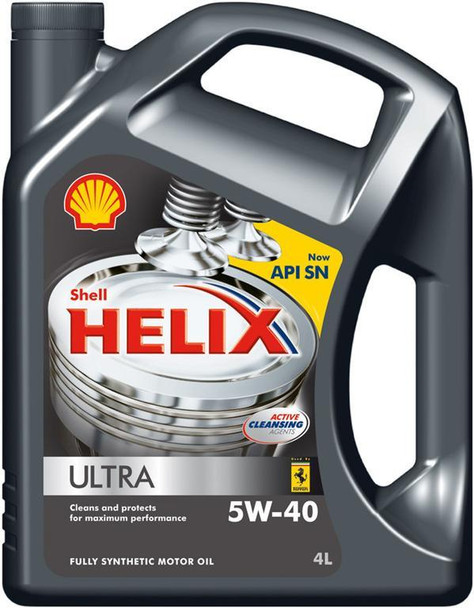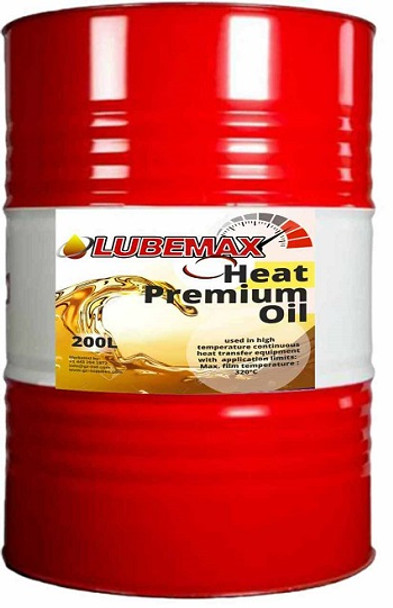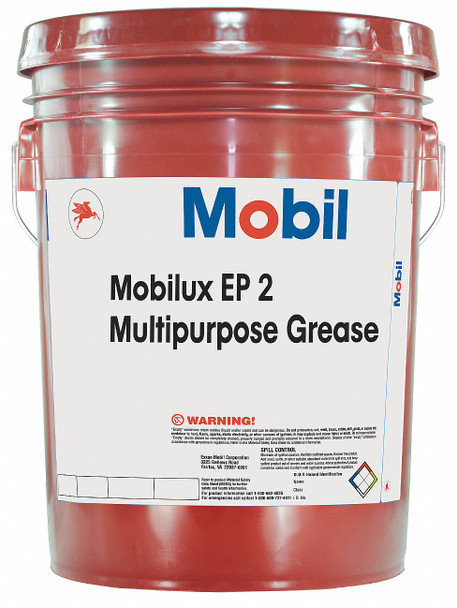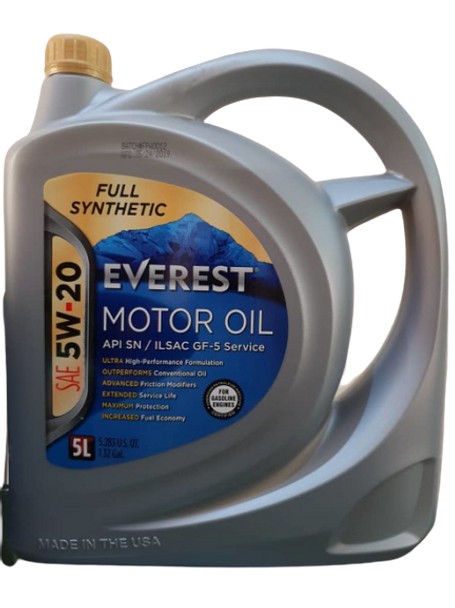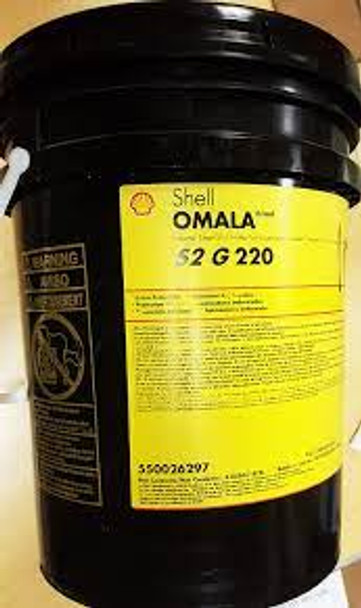Choosing the Right Lubricant: A Guide for Various Industrial Applications
Key Takeaways
Introduction
Lubricants play a crucial role in the operation of industrial machinery. By reducing friction between moving parts, lubricants minimize wear and tear, ensuring that equipment runs smoothly and efficiently. This reduction in friction not only prolongs the lifespan of machinery but also helps in maintaining consistent performance, reducing energy consumption, and preventing costly downtime.
Choosing the right lubricant is crucial for maintaining the efficiency and longevity of industrial machinery. Lubricants like Shell Helix Ultra 5W-30 and Everest Full Synthetic 5W-20 are excellent for reducing friction and ensuring the smooth operation of engine components in various industrial settings. For heavier-duty applications, Everest Synthetic Blend 15W-40 and Shell Helix Ultra 5W-40 offer enhanced protection against wear, particularly in high-temperature environments.
When it comes to greases, Lubemax Premium 18.0KG provides superior lubrication for machinery, helping to minimize wear in high-load situations. Shell Omala S2 G is ideal for gear systems, offering excellent protection under heavy loads, while Shell Naturelle is an environmentally friendly option that delivers effective performance in sensitive areas.
Selecting the appropriate lubricant, whether oil or grease, based on specific industrial requirements, is essential for optimizing machinery performance and extending its lifespan.
This guide is designed to help you navigate the complex world of industrial lubricants. Whether you're responsible for maintaining heavy machinery, automotive equipment, or specialized food processing units, selecting the right lubricant is key to ensuring optimal performance. In this guide, we'll cover the various types of lubricants, factors to consider when choosing one, and provide application-specific recommendations to help you make an informed decision.
Shell Helix Ultra 5W-40 4L
Understanding Lubricants
Types of Lubricants
1. Oils
- Mineral Oils: Derived from refining crude oil, mineral oils are the most commonly used lubricants in industrial applications. They are generally cost-effective and provide good performance under standard operating conditions.
- Synthetic Oils: These are chemically engineered to provide superior performance under extreme temperatures and conditions. Synthetic oils offer better oxidation resistance, thermal stability, and can be customized for specific applications.
- Bio-based Oils: Made from renewable resources, bio-based oils are environmentally friendly alternatives. They offer similar performance to mineral oils but are biodegradable and less harmful to the environment.
2. Greases
- Soap-based Greases: These greases are composed of a base oil and a soap thickener, which gives them their semi-solid consistency. They are versatile and can be used in a wide range of applications, from automotive to industrial machinery.
- Non-soap-based Greases: These greases use thickeners other than soap, such as clay or polyurea, to provide enhanced performance in specific environments, such as high-temperature or heavy-load applications.
3. Solid Lubricants
- Graphite: Used in high-temperature applications, graphite is a solid lubricant that can withstand extreme conditions where liquid lubricants would evaporate or break down.
- Molybdenum Disulfide (MoS2): Known for its excellent load-carrying capacity, MoS2 is used in applications where extreme pressure and temperature are present.
4. Specialty Lubricants
- Food-grade Lubricants: These lubricants are designed for use in food and beverage processing equipment. They meet strict safety standards to prevent contamination and are typically made from non-toxic ingredients.
- High-temperature Lubricants: Designed for environments with extreme heat, these lubricants can withstand high temperatures without breaking down, making them ideal for use in ovens, furnaces, and other high-heat equipment.
LubeMax Heat Premium Oil 200L
Key Properties of Lubricants
1. Viscosity
Viscosity is the measure of a lubricant's resistance to flow. It is a critical property that determines how well a lubricant can form a protective film between moving parts. The right viscosity ensures that the lubricant can effectively reduce friction and wear, while also being pumpable at the operating temperature.
2. Thermal Stability
Thermal stability refers to a lubricant's ability to maintain its properties under high temperatures. A lubricant with good thermal stability will resist oxidation and breakdown, ensuring consistent performance even in demanding environments.
3. Oxidation Resistance
Oxidation resistance is the lubricant's ability to resist chemical degradation caused by exposure to oxygen at high temperatures. Lubricants with high oxidation resistance will last longer and provide better protection against rust and corrosion.
4. Load-carrying Capacity
This property indicates how well a lubricant can handle heavy loads without breaking down or losing its protective qualities. Lubricants with high load-carrying capacity are essential in applications where machinery is subjected to extreme pressures.
5. Compatibility with Materials
It's important to ensure that the lubricant is compatible with the materials it will come into contact with, such as metals, plastics, and seals. Incompatible lubricants can cause degradation, leading to equipment failure or leaks.
Factors to Consider When Choosing a Lubricant
1.Operating Conditions
Temperature Range
The operating temperature of machinery is one of the most critical factors to consider when selecting a lubricant. A lubricant must be able to function effectively within the temperature range of the application. For instance, low-viscosity oils are preferable in cold environments, while high-temperature environments require lubricants with strong thermal stability.
Load and Pressure Conditions
The type of load and pressure conditions present in the machinery will dictate the lubricant's load-carrying capacity requirements. Heavy-duty machinery with high load demands requires lubricants that can handle extreme pressures without losing efficacy.
Speed of Operation
The speed at which machinery operates can influence the type of lubricant required. High-speed operations often need low-viscosity lubricants to minimize friction, while slower-moving machinery may require a thicker lubricant to provide adequate protection.
Environmental Factors
Consider the environmental conditions where the machinery operates. Factors like humidity, dust, and exposure to water or chemicals can impact the performance of the lubricant. In such environments, it's crucial to choose lubricants with good resistance to contamination and degradation.
2. Compatibility with Materials
Ensuring that the selected lubricant is compatible with the machinery's materials is vital. This includes checking for compatibility with metals, plastics, seals, and elastomers used in the equipment. Incompatible lubricants can cause chemical reactions that degrade the materials, leading to leaks, corrosion, or equipment failure.
Mobilux EP 2 Grease Oil
3. Regulatory and Environmental Considerations
Compliance with Industry Standards
Lubricants used in industrial applications must comply with relevant industry standards, such as NSF, ISO, and other regulatory requirements. For example, food-grade lubricants must meet NSF H1 standards, ensuring they are safe for incidental food contact. Ensuring compliance not only protects equipment but also guarantees safety and adherence to legal guidelines.
Environmental Impact and Biodegradability
With increasing environmental awareness, it's essential to consider the environmental impact of lubricants. Bio-based and biodegradable lubricants are preferable in industries where there is a risk of lubricant discharge into the environment. These lubricants minimize ecological damage and are often required in industries like agriculture and forestry.
4. Maintenance and Reapplication Intervals
Frequency of Lubrication
Different lubricants require different reapplication intervals. The frequency of lubrication depends on the type of lubricant, operating conditions, and the specific machinery. Regular reapplication is essential to maintain the protective film and ensure continuous operation. Failure to adhere to recommended intervals can lead to increased wear, overheating, and even equipment failure.
Ease of Application
Consider the ease with which the lubricant can be applied. In some cases, automatic lubrication systems may be employed to ensure consistent and timely lubrication. The method of application should be efficient and straightforward, reducing downtime and maintenance costs.
Availability of the Lubricant
It is important to ensure that the chosen lubricant is readily available in the market. This ensures that maintenance schedules can be adhered to without delay, and helps avoid potential shortages that could lead to unplanned downtime.
LubeMax Multipurpose grease 18kg
Application-Specific Recommendations
1. Heavy Machinery and Construction Equipment
Recommended Types of Lubricants
Heavy machinery and construction equipment often operate under high-load and high-temperature conditions. For these applications, high-viscosity oils and greases with strong load-carrying capacities are recommended. Synthetic oils are often preferred due to their ability to perform well in extreme conditions, providing long-lasting protection.
Specific Products and Brands
Brands like Mobil, Shell, and Castrol offer a range of lubricants specifically formulated for heavy-duty equipment. Products such as Mobil Delvac or Shell Rotella are known for their excellent performance in construction and mining environments.
2. Automotive and Transportation Industries
Importance of Choosing the Right Lubricants
In the automotive industry, selecting the correct lubricants for engines, gearboxes, and hydraulic systems is crucial. The right lubricant ensures smooth operation, reduces engine wear, and enhances fuel efficiency. For example, using a synthetic engine oil can provide better protection and performance, especially in modern, high-performance engines.
Common Challenges and Solutions
Common challenges include maintaining performance in extreme temperatures and preventing contamination in hydraulic systems. Synthetic oils and advanced multi-grade oils can offer solutions to these challenges by providing stable viscosity across a wide temperature range and superior contamination resistance.
3. Food and Beverage Processing
Necessity for Food-Grade Lubricants
In the food and beverage processing industry, lubricants must be safe for incidental contact with food products. Food-grade lubricants are formulated to be non-toxic and are compliant with food safety regulations, such as NSF H1. These lubricants are essential to prevent contamination and ensure the safety of the end product.
Compliance with Food Safety Regulations
Compliance with food safety regulations is non-negotiable in this industry. Using lubricants that meet regulatory standards ensures that your operations adhere to legal requirements and maintain high standards of product safety. Failure to comply can result in costly recalls and damage to brand reputation.
4. Chemical and Manufacturing Industries
Handling Extreme Temperatures and Chemicals
Chemical and manufacturing industries often operate under extreme conditions, such as high temperatures and exposure to aggressive chemicals. In such environments, specialized synthetic lubricants are necessary. These lubricants must resist chemical degradation and provide long-term stability to ensure the uninterrupted operation of critical machinery.
Selection of Lubricants for Long-Term Stability
The focus in these industries is on selecting lubricants that can withstand harsh conditions over extended periods. Lubricants with high oxidation resistance, thermal stability, and chemical compatibility are essential. Brands like Chevron and ExxonMobil offer products specifically designed for these challenging environments.
5. Energy Sector
Specialized Lubricants for Energy Equipment
The energy sector, including wind turbines, oil rigs, and power plants, requires lubricants that can operate reliably in remote or harsh environments. For example, wind turbines often use synthetic gear oils that can handle extreme pressures and provide protection against wear over long intervals.
Ensuring Reliability in Harsh Environments
Reliability is key in the energy sector, where equipment failure can lead to significant financial losses. Lubricants must be able to perform consistently in conditions ranging from deep-sea oil rigs to high-altitude wind farms. Using high-performance synthetic oils and greases ensures that equipment remains operational, even in the most demanding environments.
Everest Motor Oil 5W-20 Full Synthetic-5ltrs
How to Assess Lubricant Performance
1. Testing and Analysis Methods
Oil Analysis
Oil analysis is a crucial tool for monitoring lubricant performance and machinery health. It involves testing the oil for viscosity, contamination, and the presence of wear metals. Regular oil analysis can help detect potential issues early, allowing for preventive maintenance and avoiding costly repairs.
Grease Testing
Grease testing involves analyzing the consistency, bleed, and evaporation loss of the grease. This testing ensures that the grease is maintaining its protective qualities and is still effective in its application. Regular testing helps in adjusting lubrication intervals and selecting the right grease for the specific application.
2. Monitoring and Maintenance Practices
Condition-Based Monitoring
Condition-based monitoring involves continuously monitoring the condition of the lubricant and the equipment it is used in. This approach allows maintenance to be performed based on the actual condition of the lubricant, rather than on a fixed schedule, reducing unnecessary downtime and optimizing lubricant usage.
Predictive Maintenance
Predictive maintenance uses data from oil analysis and other monitoring techniques to predict when maintenance should be performed. This proactive approach helps prevent unexpected equipment failures and extends the life of both the lubricant and the machinery.
3. Cost-Benefit Analysis
Balancing Lubricant Costs Against Equipment Downtime
While high-quality lubricants may come with a higher upfront cost, they can significantly reduce equipment downtime and extend the lifespan of machinery. A cost-benefit analysis should be performed to weigh the cost of the lubricant against the potential savings in maintenance, repairs, and energy consumption.
Shell Omala S2 G 220
Common Mistakes in Lubricant Selection
1. Overlooking Environmental Conditions
Consequences of Ignoring Operating Environment
Failing to consider the operating environment when selecting a lubricant can lead to serious consequences, such as accelerated wear, corrosion, and equipment failure. For example, using a lubricant not designed for high-humidity environments can result in rust and degradation of machine components.
2. Choosing Based on Price Alone
Risks of Using Lower-Cost Lubricants
Opting for cheaper, lower-quality lubricants to save costs can be a false economy. These lubricants may not provide adequate protection, leading to increased wear, frequent breakdowns, and higher overall maintenance costs. Investing in a high-quality lubricant is essential for long-term savings and equipment reliability.
3. Inadequate Reapplication Practices
Impact on Equipment Lifespan
Not adhering to recommended reapplication practices can lead to insufficient lubrication, causing increased friction, heat buildup, and accelerated wear. Regular and proper lubrication is critical to ensuring the longevity and efficient operation of industrial equipment.
Frequently Asked Questions
1. What is the difference between mineral oil and synthetic oil?
Mineral oils are derived from refining crude oil, while synthetic oils are chemically engineered to provide superior performance, especially in extreme conditions. Synthetic oils offer better thermal stability, oxidation resistance, and can be tailored for specific applications.
2. How often should I change or reapply lubricant?
The frequency of lubricant changes or reapplications depends on the operating conditions, the type of lubricant used, and the specific machinery. Regular oil analysis and condition-based monitoring can help determine the optimal intervals for your application.
3. Can I mix different types of lubricants?
It is generally not recommended to mix different types of lubricants, as this can lead to chemical incompatibility, reduced performance, and potential damage to the machinery. Always consult the lubricant manufacturer or a lubrication expert before mixing lubricants.
4. What are the signs that a lubricant needs to be replaced?
Common signs that a lubricant needs to be replaced include changes in viscosity, the presence of contaminants, unusual machine noises, increased operating temperatures, and visible wear on components. Regular monitoring and oil analysis can help identify these issues early.
5. Why is it important to use food-grade lubricants in the food processing industry?
Food-grade lubricants are essential in the food processing industry to prevent contamination of food products. These lubricants are made from non-toxic ingredients and comply with stringent safety standards, ensuring that they are safe for incidental contact with food.
Other Related Articles
Where to Buy Marine Lubricants in Nigeria: A Guide to Finding Suppliers Near You
Conclusion
Selecting the right lubricant is vital for ensuring the optimal performance and longevity of industrial machinery. Consider factors such as operating conditions, material compatibility, regulatory requirements, and environmental impact when making your choice. Regular monitoring and maintenance, along with a proactive approach to lubrication, will maximize the benefits of your lubricant selection.
When in doubt, consulting with a lubrication expert can help you make the best decision for your specific application. Experts can provide insights based on industry standards, testing data, and practical experience, ensuring that you choose the most suitable lubricant for your needs.
Choosing the right lubricant is not just about selecting a product; it's about investing in the long-term efficiency, safety, and reliability of your operations. By carefully considering the factors discussed in this guide, you can make informed decisions that will benefit your machinery and your bottom line.
For top-quality lubricants that meet the demands of your industrial applications, trust GZ Industrial Supplies. We offer a wide range of lubricants, including mineral oils, synthetic oils, greases, and specialty lubricants for various industries. Visit our website at GZ Industrial Supplies to explore our selection and get expert advice on choosing the right lubricant for your needs.

